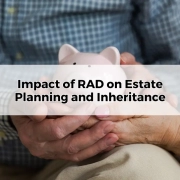Financial Hardship Provisions for Age Pensioners in Aged Care
Table of Contents
ToggleNavigating the complexities of aged care in Australia can be particularly challenging for Age Pensioners who often face financial constraints. The cost of aged care can be substantial, and for those reliant on the Age Pension, meeting these expenses can lead to significant financial stress. This is where financial hardship provisions come into play, offering a lifeline to those who may struggle to afford the necessary care. Understanding these provisions is crucial for ensuring that Age Pensioners can access the support they need without compromising their financial security.
What Are Financial Hardship Provisions?
Financial hardship provisions are government-supported measures designed to assist individuals who are unable to meet the costs of aged care due to limited financial resources. These provisions are specifically tailored to support Age Pensioners who may find themselves in a position where their income and assets are insufficient to cover the fees associated with aged care services. By providing access to reduced fees or additional financial support, these provisions help ensure that vulnerable individuals receive the care they need without facing undue financial burden.
Eligibility Criteria for Financial Hardship Assistance
To access financial hardship provisions, Age Pensioners must meet specific eligibility criteria. These typically include income and asset thresholds that determine whether an individual qualifies for assistance. The criteria are designed to ensure that help is provided to those who genuinely need it. For instance, applicants must demonstrate that their income and assets, after accounting for basic living expenses, are insufficient to cover aged care fees. Additionally, certain conditions, such as unexpected medical expenses or significant changes in financial circumstances, can also qualify an individual for financial hardship assistance.
Types of Assistance Available
Under the financial hardship provisions, there are several types of assistance available to eligible Age Pensioners. One of the most significant forms of support is the reduction or complete waiver of aged care fees, including both accommodation costs and daily care fees. Additionally, pensioners may gain access to supplementary financial support services that can help manage ongoing expenses related to their care. These forms of assistance are crucial in easing the financial pressures that aged care costs can impose, ensuring that Age Pensioners can continue to receive the care they need.
Application Process for Financial Hardship Provisions
Applying for financial hardship provisions involves a detailed and thorough process. Applicants must complete specific forms provided by the aged care provider or the Services Australia, detailing their financial situation. This includes providing comprehensive documentation, such as bank statements, details of assets, and evidence of income. The process also requires applicants to explain any extraordinary circumstances contributing to their financial hardship. Ensuring that all required documentation is accurate and complete is essential for a successful application, as any discrepancies can delay or complicate the process.
Role of Centrelink in Financial Hardship Provisions
Centrelink plays a pivotal role in the administration of financial hardship provisions for Age Pensioners in aged care. As the primary government agency responsible for assessing financial circumstances, Centrelink evaluates the eligibility of applicants for hardship assistance. This involves a thorough review of the individual’s income, assets, and overall financial situation. Centrelink also determines how any financial assistance provided will interact with existing payments, such as the Age Pension, ensuring that individuals receive the maximum benefit available without disrupting their current entitlements.
Impact of Financial Hardship Provisions on Age Pension
Receiving financial hardship assistance can have implications for Age Pension payments, particularly regarding how income and assets are assessed. While the provisions are designed to alleviate financial stress, it’s important to understand how they might affect pension entitlements. In some cases, the reduction of aged care fees through hardship provisions can lead to a reassessment of pension payments. However, these adjustments are typically managed to ensure that the individual continues to receive sufficient financial support, balancing the need for aged care with the preservation of pension benefits.
Understanding the Means-Tested Care Fee Reduction
The Means-Tested Care Fee is a critical component of aged care costs that can be influenced by financial hardship provisions. This fee is calculated based on an individual’s income and assets, and it can significantly impact the overall cost of care. Financial hardship provisions may result in a reduction of this fee, thereby lowering the financial burden on the individual. Understanding how this fee is calculated and how it can be adjusted through hardship provisions is essential for those seeking to manage their aged care costs effectively.
Navigating the Aged Care Financial Hardship Supplement
The Aged Care Financial Hardship Supplement is a specific form of assistance available to those who qualify under the financial hardship provisions. This supplement is designed to cover the gap between what an individual can afford to pay and the actual cost of aged care services. To access this supplement, applicants must meet stringent eligibility criteria and demonstrate that they have exhausted all other means of financial support. The supplement provides critical relief to those facing severe financial difficulties, ensuring that they can continue to receive the care they need.
Legal and Estate Planning Considerations
Accessing financial hardship provisions can have significant implications for estate planning and the management of assets. For instance, decisions about the sale of property or the transfer of assets may affect eligibility for financial hardship assistance. It’s important to carefully consider how these provisions interact with estate planning goals, particularly in terms of protecting assets for future generations. Legal advice may be necessary to navigate these complexities, ensuring that individuals can access the support they need without jeopardising their long-term financial security.
Common Pitfalls in Applying for Financial Hardship Provisions
Applying for financial hardship provisions can be a complex process, and there are several common pitfalls that applicants should be aware of. One of the most frequent issues is the failure to provide complete or accurate financial information, which can lead to delays or denials of assistance. Additionally, misunderstanding the eligibility criteria or not fully documenting extraordinary circumstances can hinder an application’s success. To avoid these pitfalls, it’s important to carefully follow the application guidelines and seek assistance if needed to ensure that all requirements are met.
Seeking Professional Financial Advice
Given the complexities involved in accessing financial hardship provisions, seeking professional financial advice is highly recommended. A financial adviser with expertise in aged care can provide invaluable guidance, helping individuals navigate the application process and maximise their access to available support. Professional advice ensures that all aspects of financial planning, including the impact on pension entitlements, tax implications, and estate planning, are carefully considered. By working with a knowledgeable adviser, Age Pensioners can confidently manage their finances and secure the care they need in their later years.









